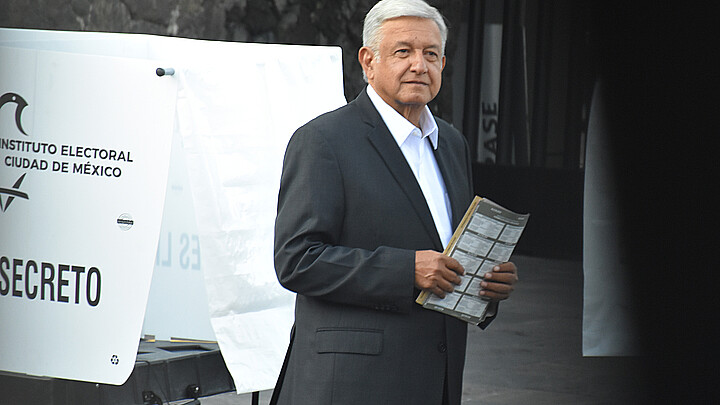Health
Mexico's Supreme Court legalizes abortion as second largest Catholic nation shifts pro-choice
Before 2019, the procedure was largely criminalized throughout Mexico. Catholics dominate the North American country by more than 72% of the population, and Mexico harbors the second largest Catholic population in the world, an estimated total of more than 90 million people.

September 7, 2023 7:03am
Updated: September 7, 2023 7:03am
In a complete contrast to the recent judicial shift in the United States, Mexico’s Supreme Court decriminalized abortion nationwide Wednesday.
The Court’s decision came after years of debate and persistent pro-choice activist efforts throughout the predominantly Catholic nation. It follows the pioneering political decision of Mexico City, which was the first Mexican jurisdiction to decriminalize abortion 15 years ago.
Catholics dominate the North American country by more than 72% of the population, and Mexico harbors the second largest Catholic population in the world, an estimated total of more than 90 million people, according to the Mexican National Institute of Statistics and Geography.
The largest Catholic nation in the world is Brazil with an estimated 123 million practicing the religion, according to the Pew Research Center.
Before 2019, the procedure was largely criminalized throughout the country. In August of this year, several Mexican jurisdictions legalized the procedures within the first 12 weeks of pregnancy. Some women who have sought the procedure after 12 weeks, even where early termination was legal, faced prosecution for murder.
Since Mexico City’s bold decision to legalize the procedure 15 years ago, several other Mexican jurisdictions have followed. The Mexican central state of Aguascalientes became the 12th state to decriminalize the procedure, according to NBC Latino news.
While some jurisdictions have resisted the pro-choice trend, jurists in those areas will now have to consider the Supreme Court’s ruling.
“The First Chamber of #TheCourt has ruled that the juridical system that penalizes abortion in the Federal Criminal Code is unconstitutional because it violates the human rights of women and people with the capacity for pregnancy,” the Mexican Supreme Court tweeted on Wednesday.
"The green tide continues to advance," Supreme Court Justice Arturo Zaldívar tweeted, a reference to the color of the Latin American pro-choice movement. "All rights for women and people who gestate! Until equality and dignity become customary!"
The Supreme Court’s ruling comes shortly after the sweeping 2022 Dobbs v. Jackson Health decision in the United States, which had the opposite impact, overturning abortion as a “fundamental right.”
That decision was a total reversal of the 1973 Roe v. Wade decision, which decriminalized abortion nationwide. The Roe decision came eight years after the Court ruled in Griswold v. Connecticut that sexual decisions were constitutionally protected under a “penumbra of privacy” of fundamental rights that were implied in the language set forth in the First, Third, Fourth, Ninth and Fourteenth Amendments of the Constitution.
Roe focused mostly on the “personal concept of liberty” expressly stated in the Fourteenth Amendment.
The Dobbs ruling in the United States came in complete contrast to a sweeping trend toward pro-choice throughout Central and South America. Since the U.S. ruling, 24 states have tightened abortion restrictions.
Ipas México, a nonprofit organization that supports abortion rights in the country, called the decision "historic" and applauded GIRE for its legal counsel in the case.
Another pro-choice non-governmental organization, the Information Group for Chosen Reproduction, said the Court ruled that the part of the Mexican federal penal code that outlawed abortion no longer has any legal force.
“No woman or pregnant person, nor any health worker will be able to be punished for abortion,” GIRE declared in a statement released to the public.
As part of the ruling, Mexican federal public health services and facilities must now perform an abortion to anyone who requests it, according to the NGO.
For now, the Court has ordered all Mexican jurisdictions nationwide to recognize that the procedure it being decriminalized from its federal penal code.











